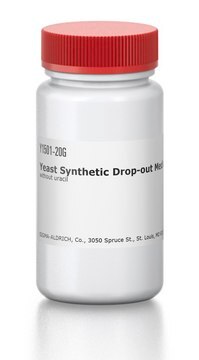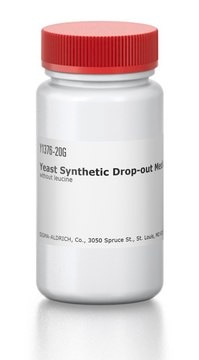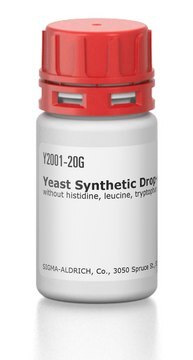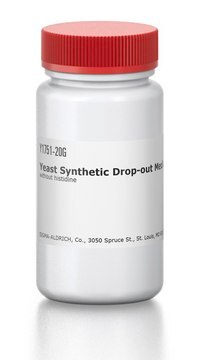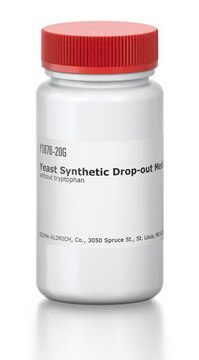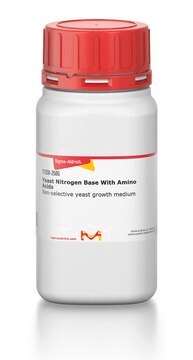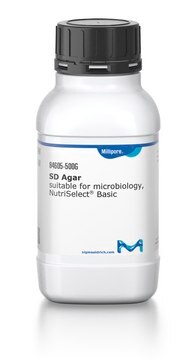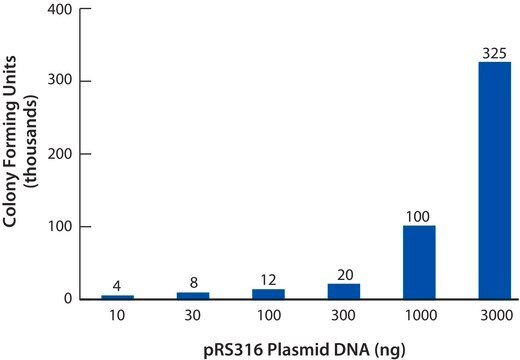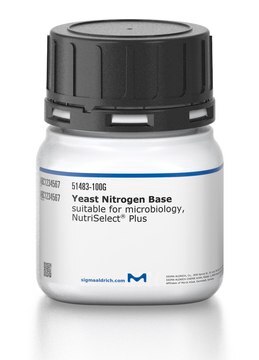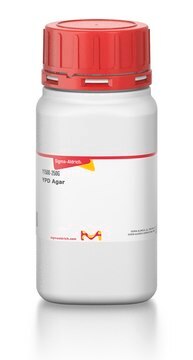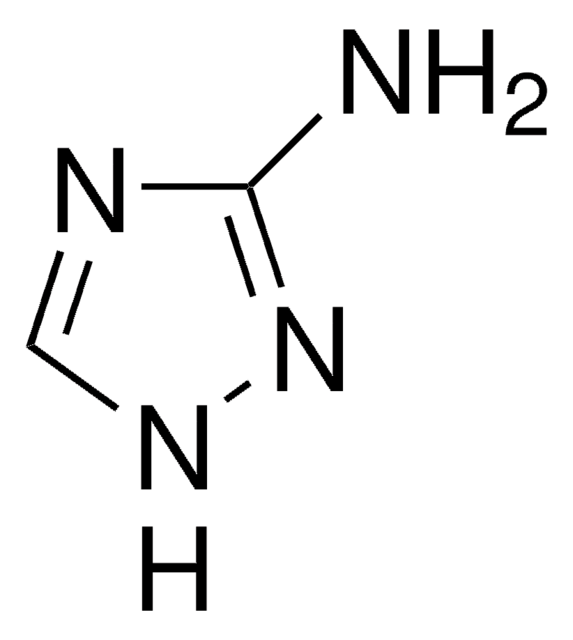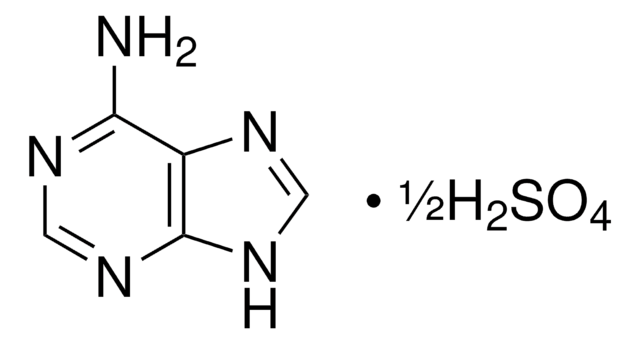Y0750
Yeast Synthetic Drop-out Medium Supplements
without leucine and tryptophan
About This Item
Recommended Products
Looking for similar products? Visit Product Comparison Guide
Related Categories
Application
Components
Amino acids: All standard amino acids except for leucine and tryptophan. All the amino acids are present at a concentration of 76 mg/L.
Other nutrients: Adenine (18 mg/L), inositol (76 mg/L), p-aminobenzoic acid (8 mg/L), uracil (76 mg/L).
Other Notes
Quantity
Storage Class Code
13 - Non Combustible Solids
WGK
WGK 1
Flash Point(F)
Not applicable
Flash Point(C)
Not applicable
Personal Protective Equipment
Regulatory Listings
Regulatory Listings are mainly provided for chemical products. Only limited information can be provided here for non-chemical products. No entry means none of the components are listed. It is the user’s obligation to ensure the safe and legal use of the product.
EU REACH Annex XVII (Restriction List)
Certificates of Analysis (COA)
Search for Certificates of Analysis (COA) by entering the products Lot/Batch Number. Lot and Batch Numbers can be found on a product’s label following the words ‘Lot’ or ‘Batch’.
Already Own This Product?
Find documentation for the products that you have recently purchased in the Document Library.
Customers Also Viewed
Articles
Technical Article on yeast media. Yeasts are eukaryotic microorganisms whose genomes have been comprehensively studied and some have been sequenced.
The development of genetic engineering and cloning has opened many possibilities of expression and isolation of heterologous proteins for research purposes. Considerable advances in technology have enabled expression and isolation of recombinant proteins in large scale.
Protocols
Yeast Drop Out Bulletin. The selection of plasmids in yeast is based on the use of auxotrophic mutant strains, which cannot grow without a specific medium component (an amino acid, purine or pyrimidine). Transformation with a plasmid containing the mutated gene enables the transformant to grow on a medium lacking the required component. Although yeast can grow on a synthetic medium without any amino acids, better yield and growth rate can be achieved on richer media.
Yeasts are considered model systems for eukaryotic studies as they exhibit fast growth and have dispersed cells. Yeast cultures can be grown, maintained, and stored in liquid media or on agar plates using techniques similar to those for bacterial cultures.
Our team of scientists has experience in all areas of research including Life Science, Material Science, Chemical Synthesis, Chromatography, Analytical and many others.
Contact Technical Service